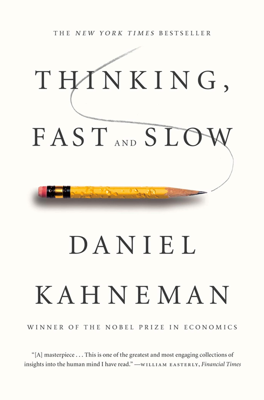The Illusion of Understanding
Narrative Fallacies and Illusions of Understanding
Narrative Fallacies: Flawed stories of the past shape how we view the world and what we expect of the future, leading to narrative fallacies. These are driven by our desire to make sense of the world through simple, coherent narratives that overemphasize talent or intention and underplay the role of luck.
Halo Effect: This cognitive bias enhances narrative coherence by linking a general impression of a person (e.g., attractive or unattractive) with unrelated personal traits (e.g., athletic ability). This simplification helps to create a fluent story but can distort reality.
Illusion of Inevitability: Successful outcomes, like the story of Google's rise, often feel inevitable in retrospect, fostering an illusion that the past was predictable and thus the future can be too. The inclusion of a lucky incident in such stories tends to amplify this illusion by making success seem more about destiny than chance.
Impact of Luck vs. Skill
Misperception of Luck and Skill: In recounting success stories (like Google's), there's a tendency to misattribute the balance of skill and luck, often overestimating the role of skill because every key decision appears flawless in hindsight.
WYSIATI Rule: "What You See Is All There Is" leads to constructing stories from only the information available, often creating a misleadingly coherent narrative from limited data. This can mask the complexity and randomness of real-world events.
Hindsight Bias and Its Consequences
Altering Perception: Once we know the outcome of an event, our view of the past changes, leading us to overestimate our prior knowledge or the predictability of events.
Difficulty in Recalling Past Beliefs: Once our beliefs have changed, it’s challenging to accurately recall our original thoughts or expectations, often leading us to think we knew things were going to happen the way they did.
I-knew-it-all-along Effect: This hindsight bias can lead to distorted evaluations of decisions based on outcomes rather than on the quality of the decision at the time it was made.
Social and Practical Implications
Faulty Evaluations of Decision Makers: Observers often judge decisions not by the quality of the decision-making process but by their outcomes, which can unjustly penalize good decisions that end up with bad outcomes or vice versa.
Influence on Risk Taking: Knowing that outcomes influence perception can lead decision-makers to overly cautious behaviors to avoid criticism, or conversely, can reward reckless risk-taking if the outcomes are favorable.
Challenging the Perceived Predictability of Success
Overvalued Leadership Impact: Popular business narratives often overstate the impact of leadership on corporate success, ignoring the significant role of luck and external factors.
Regression to the Mean in Corporate Success: The perceived gap between more and less successful companies often diminishes over time, reflecting the regression to the mean more than any actual change in company or leadership quality.
Misunderstanding of the Business Outcome Cause and Effect
CEO Performance Perception Shifts: Public perception of a CEO's ability can shift dramatically based on company performance, which can be more about luck than actual management skill or strategy.
Illusions Promoted by Business Books: Business books that offer direct recipes for success tend to create illusions of understanding, shaping a misleading narrative that success follows from simple, replicable strategies, rather than being influenced by complex and often unpredictable factors.
